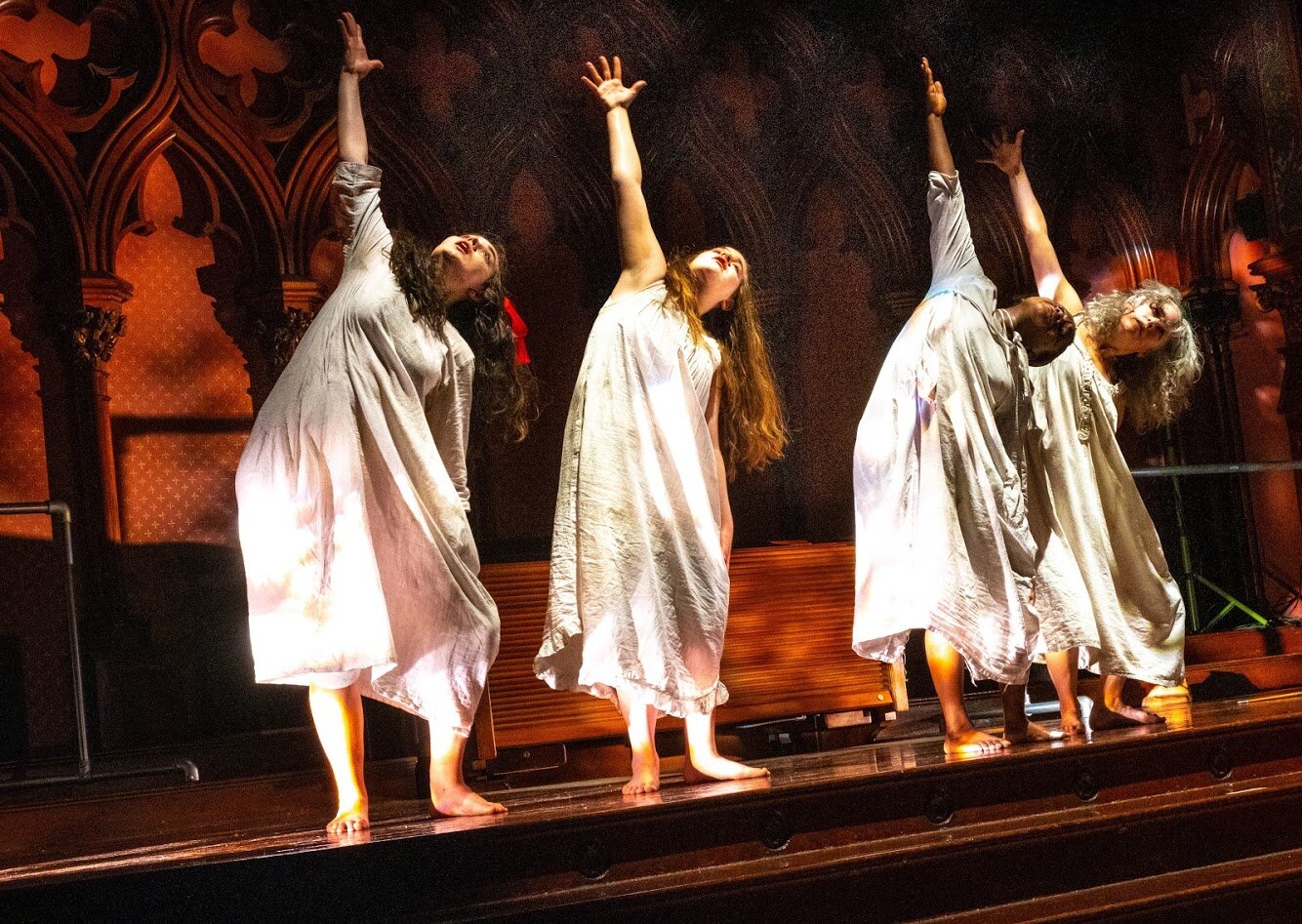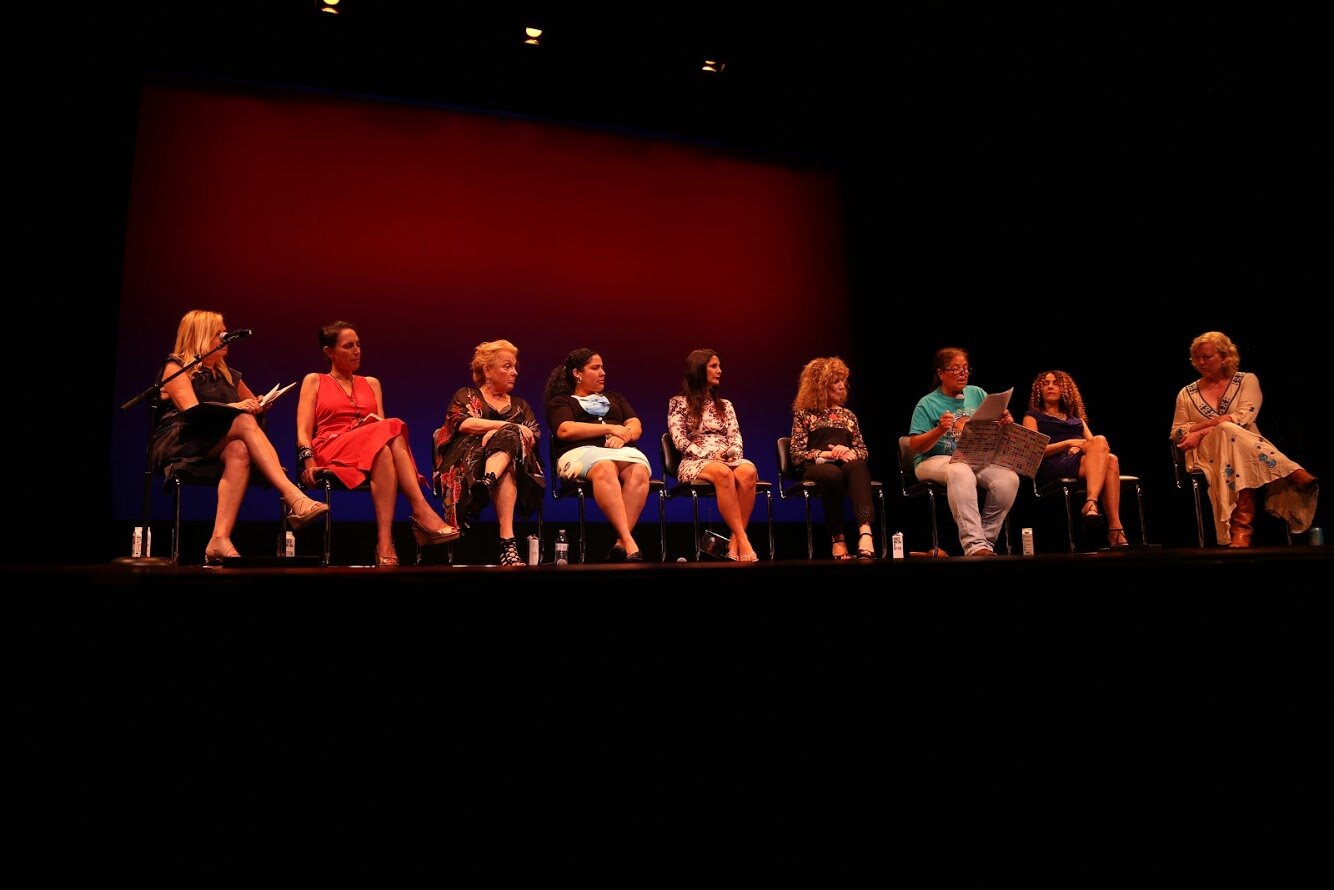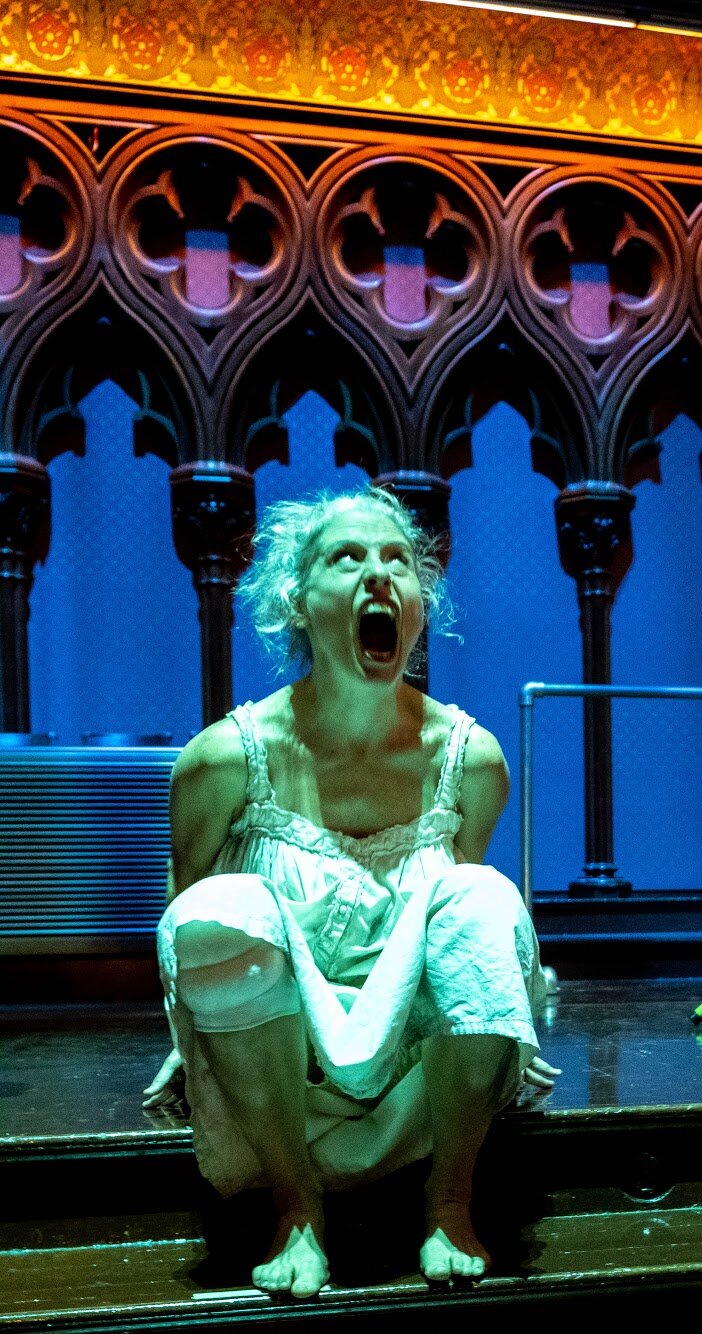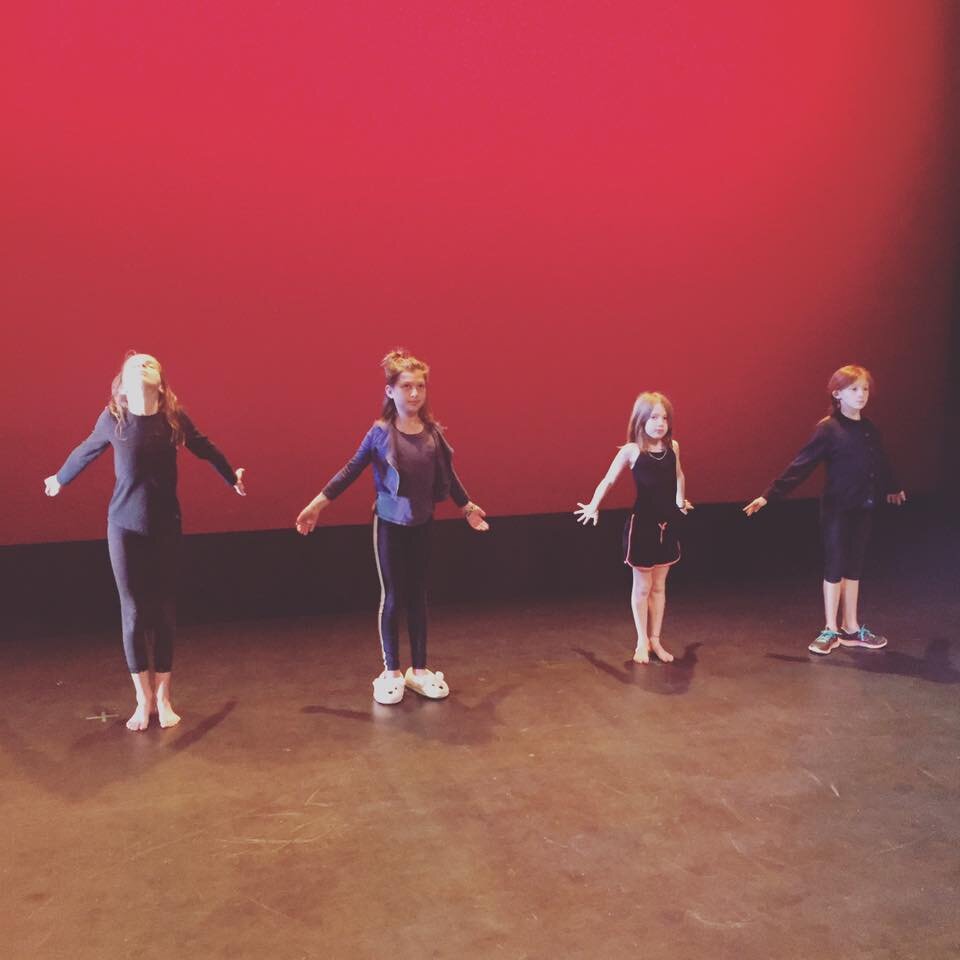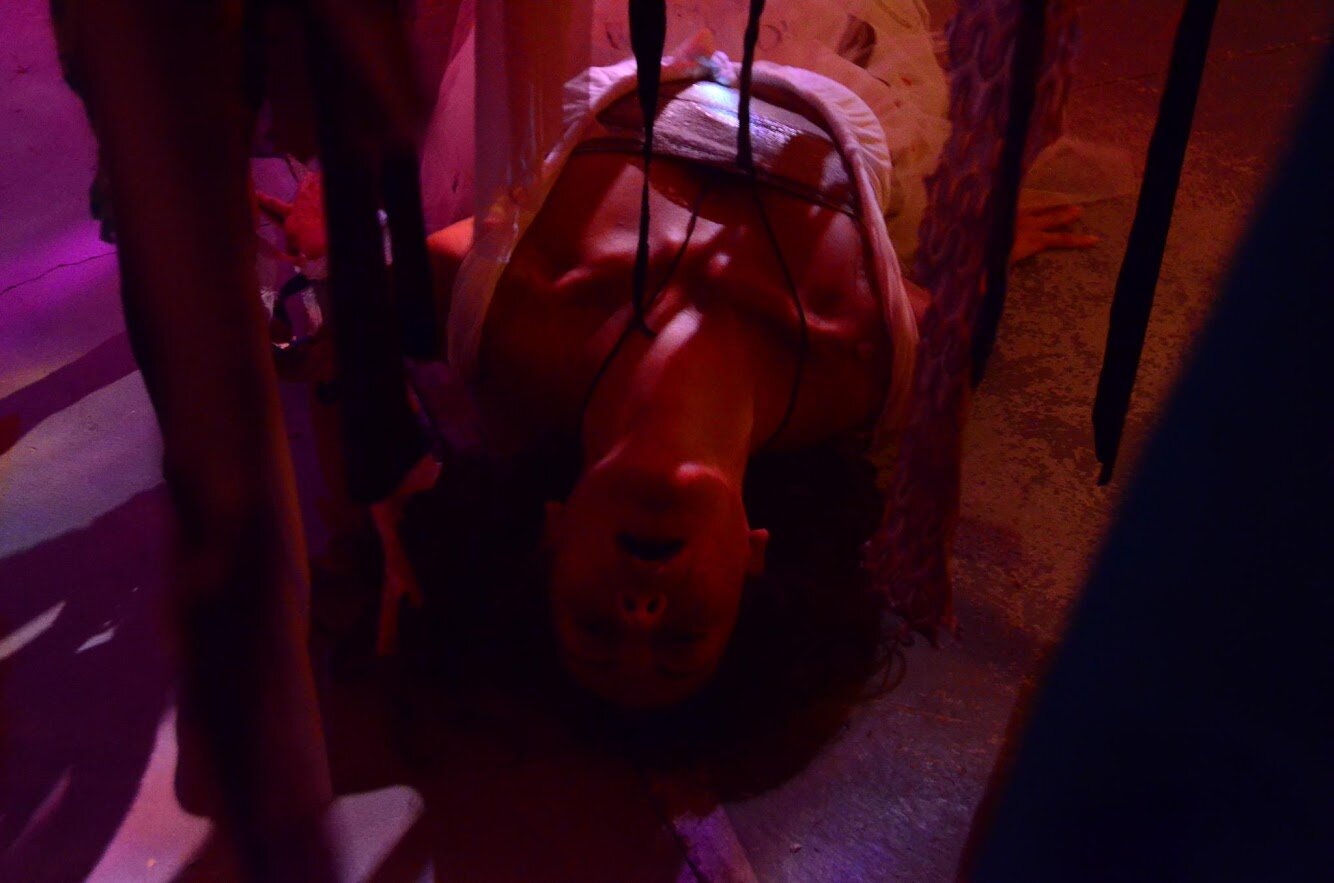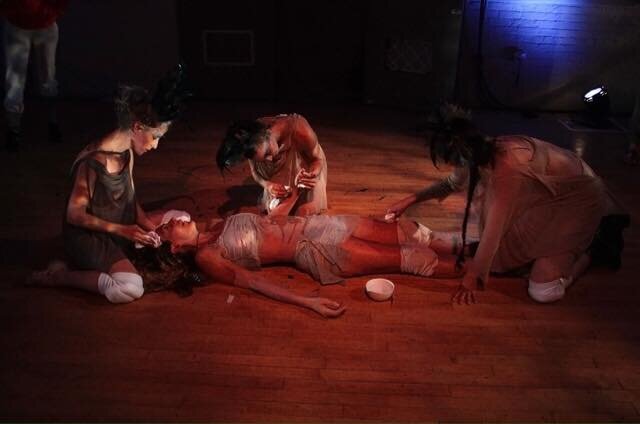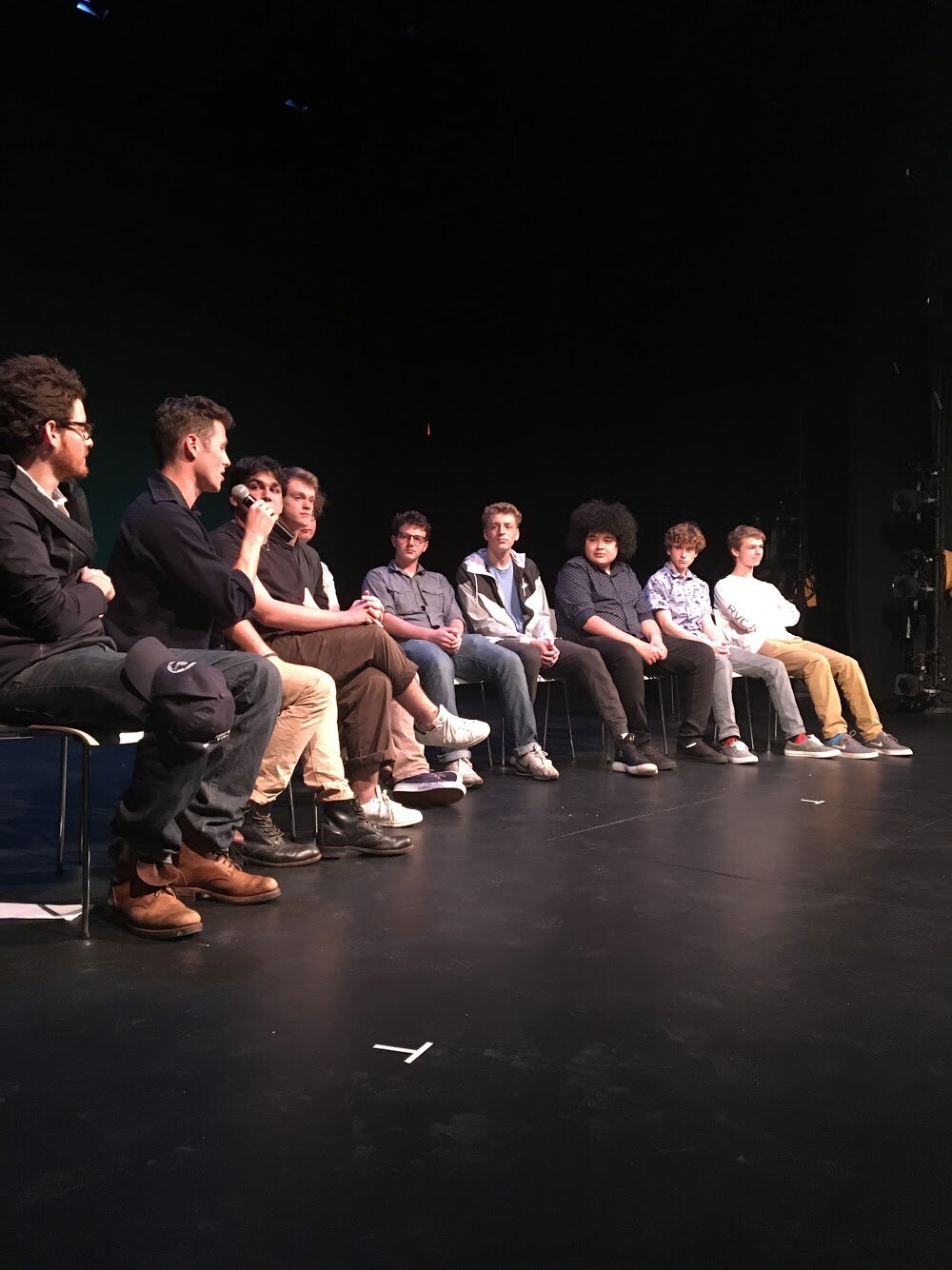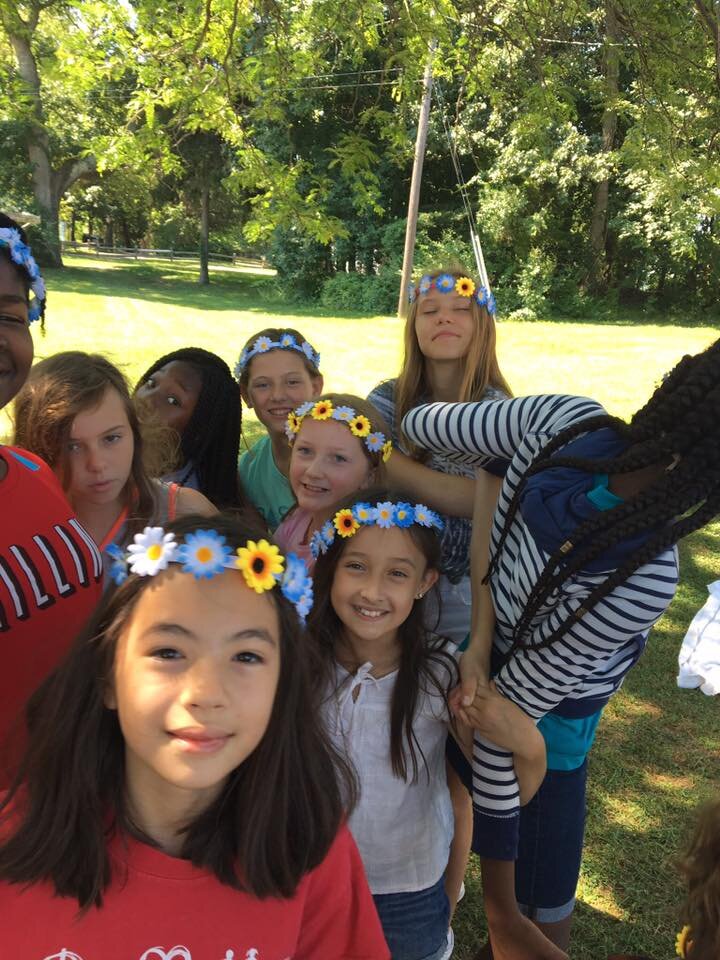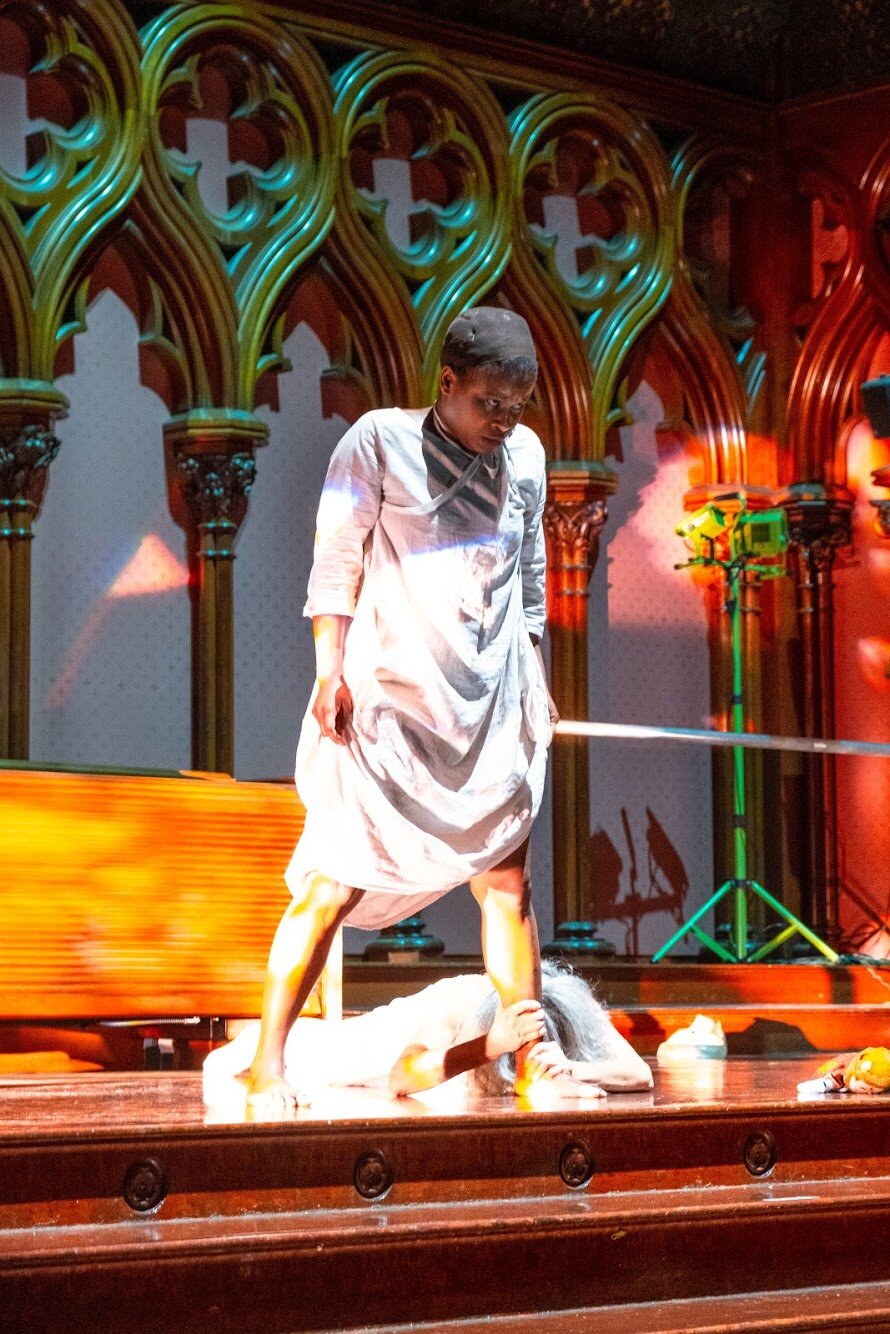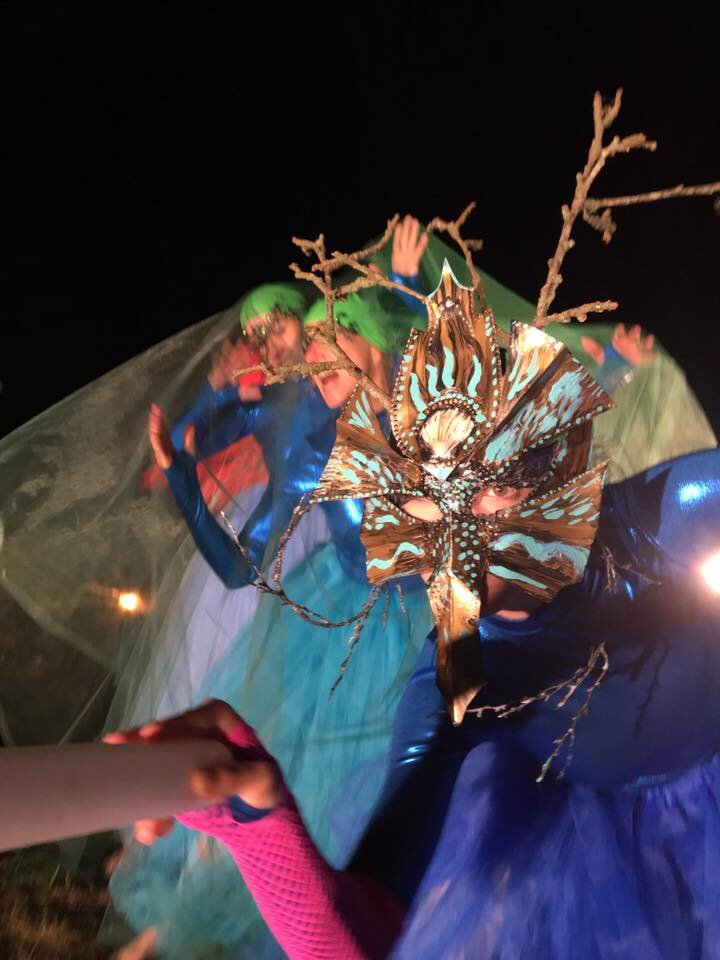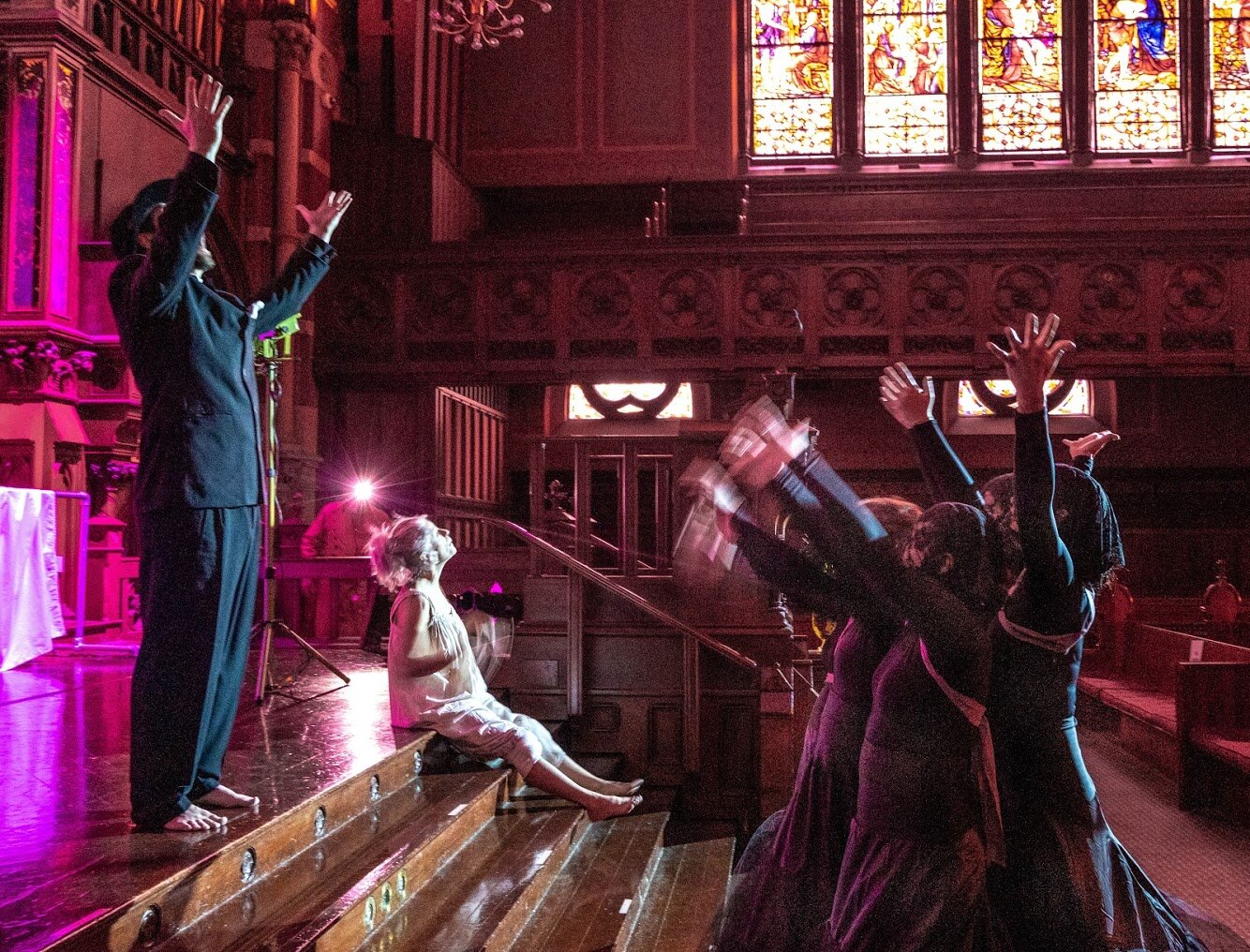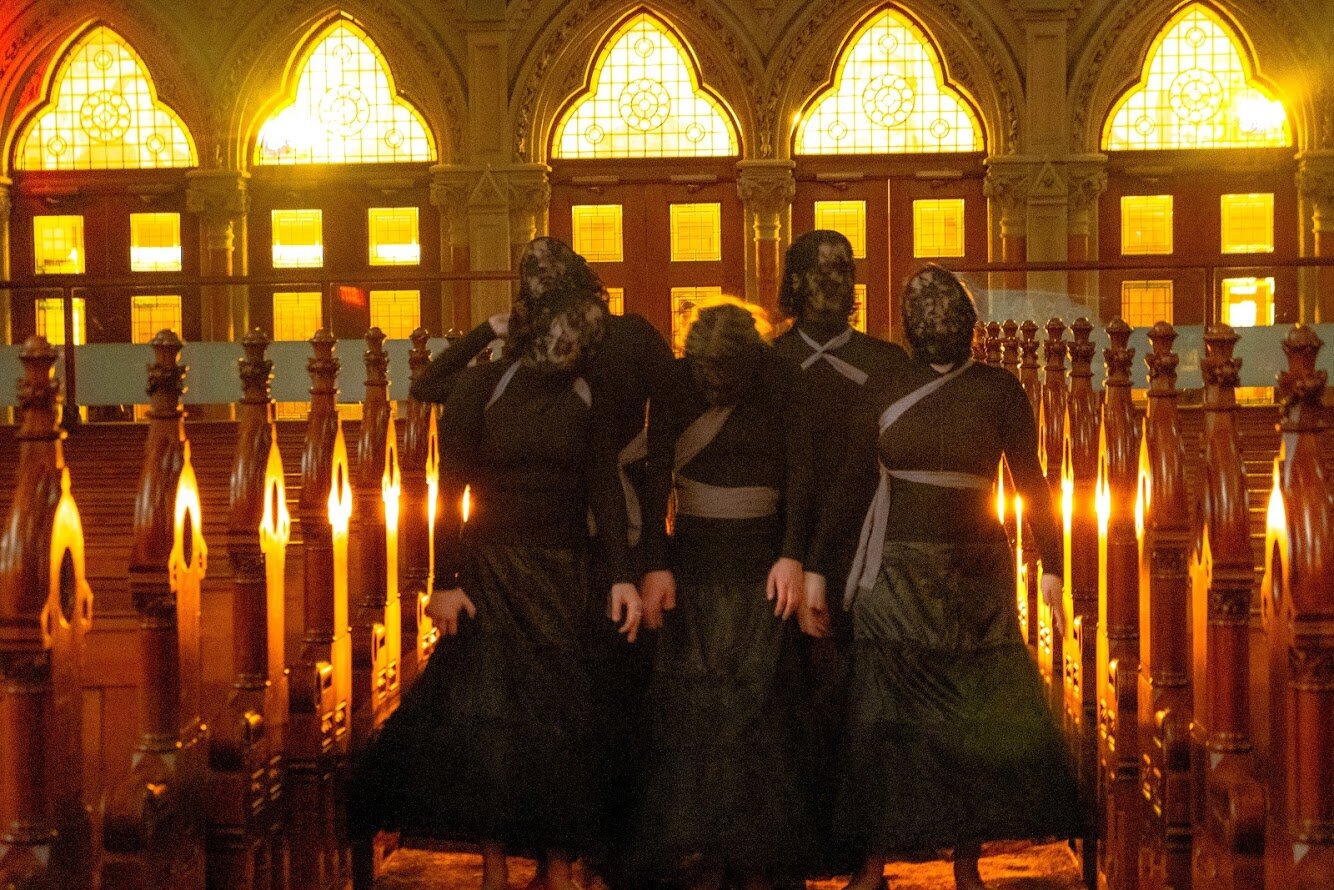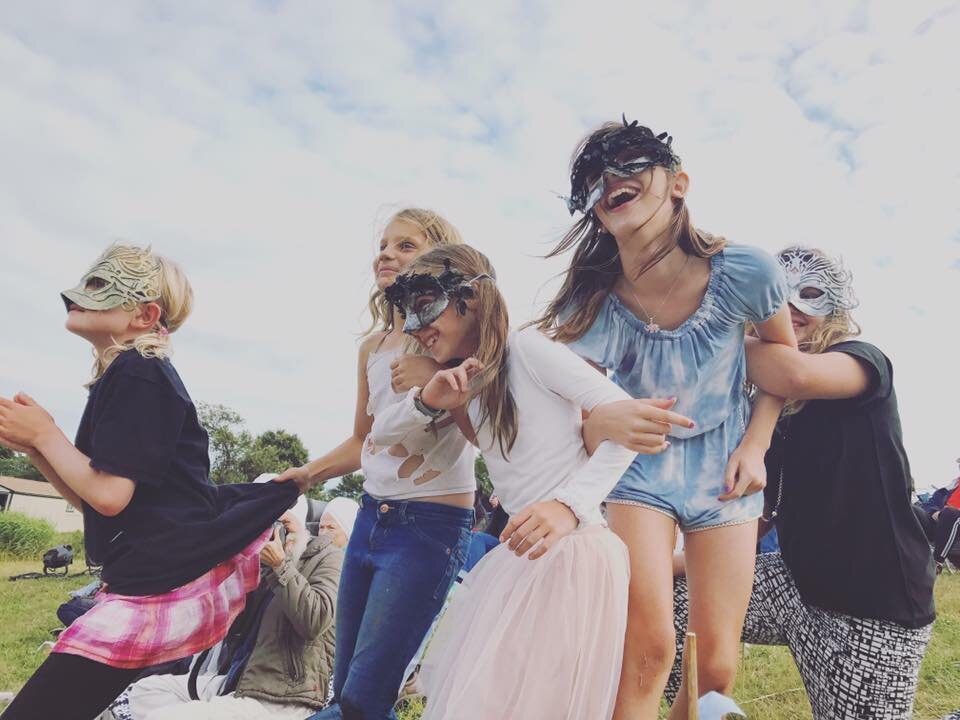Kate Mueth is the Founder and Artistic Director of the award-winning dance theater company The Neo-Political Cowgirls. In their 13th year of devised theater making, NPC continues to present bold, "Mind bending, visually stunning" theater that seeks to deepen and challenge the ways in which audiences experience theater story that awakens their human connection. NPC’s professional theater has built and presented unapologetic, “ground-breaking” work on the East End, the place they call home, Off-Broadway, Boston, in Helsinki, Finland and Berlin, Germany. In Kate’s long list of directorial, acting and choreography work, she has led a world collective of musicians in the rock opera “Playing God” (with Mountain drummer Corky Laing) in NYC and Helsinki as well performed and served as Dance Captain for the World Premier opera MONODRAMAS on Lincoln Center’s stage. A proud Actor’s Equity member, Kate’s acting credits are a long list that include Shakespeare, new stage works and films with international artists and directors as well as modern comedies. She has worked as actress/director/choreographer with such luminaries as Blythe Danner, Tony Walton, Simon Jones, Cathy Curtin, Liz Larsen, Heather Lind, Joe Pintauro, Tony Waton, Joy Behar, Laura Gomez, Florencia Lozano and others at Lincoln Center, The John Drew Theater at Guild Hall, Bay Street Theater, Chicago Playwrights, 13th St. Rep and other notable venues. She is always happiest when she gets to work on projects with her husband, the talented actor, director and producer Josh Gladstone.
Committed to shining light on female-identifying theater makers, NPC produces and supports work by women+ in a myriad of ways to create parity on the stage, in life and within work spaces. NPC's prominent Arts Education arm, Making Space, has been called "Crucial to our community" for their tireless work in using the Arts to creatively address social (in)justice, intergenerational community-building, educational enhancement and conflict resolution. Running annual programs in the schools and for the public, NPC consistently proves their passion in working creatively with community in deep artistic dives to bridge perceived differences, empower voice, and inspire purposeful leadership. The company’s annual Andromeda’s Sisters Arts and Advocacy Gala is an energized networking blast opening the door for female+ playwrights’ voices and women, children and environmental social justice not-for-profits both local and global to call audiences to action. She trained in the prestigious Arts Leadership program at Lincoln Center, Columbia College Chicago, Broadway’s Circle in the Square Theater Conservatory, Shakespeare & Company, and is Co-VP of Communications sitting on the board of directors for the League of Professional Theatre Women. She has a son, August Gladstone, with husband Josh who is a Dean’s List Visual Media Arts student with a focus on writing for television and film and minoring in Psychology and Comedy at Emerson College in Boston. Outside of her NPC and other projects, Kate is currently focused on working with women from all walks of life through workshops and coaching to explore their innate creativity to unfold their authenticity, concise communication, and inspire fearless action/action unshaken by fear. www.npcowgirls.org
THE CREATIVE PROCESS
So just tell us a little bit about your theater dance company, Neo-Political Cowgirls, how that came to being and some of your recent projects.
KATE MUETH
Thank you. Neo-Political Cowgirls started, we're in our [13th] year. I'm a trained actress, dancer, choreographer, and it became obvious to me in auditions that things in the industry are not very fun. It felt more...I think there's too much human dragging human down in the act of auditions or the company that we keep in terms of being actresses.
The focus became on... Women just become afraid because we aren't being allowed to age naturally. We not allowed to have our wrinkles. We're not allowed to have our body shift in any way, shape, or form that is authentic to life. So this, for me, became problematic because it wasn't looking to be fun anymore. I didn't leave an audition and go, "Wow, that was really life-affirming! That was a pleasurable experience!" So I thought, I am, I was, a passionate actress. I care very deeply about the arts, about theater arts. So I had a choice to make, either leave entirely or be the change, as they say. So I started Neo-Political Cowgirls to embrace women in their story, in our story.
THE CREATIVE PROCESS
And then you mention beauty, and I know that our notions of beauty–I think that this is very important to the Neo-Political Cowgirls as well?
MUETH
Yes. You are so perceptive. One of the earliest things I remember talking about with our second project, which was Trojan Women Redux, taking the massive, beautiful poem of Trojan Women, and it was all physical, very powerful, very physical. We had women who were librarians, mothers, midwives, women from all walks of life. It was all outdoors, and it was very in the body, very physical, very powerful.
It had all sorts of emotions of joy and pain and sorrow and rage. But what we did at the end, instead of leaving the women weeping and wailing, which is what happens at the end of Trojan Women, we turned it around and said, what if instead of turning our rage on these men or on this one woman–who has, you know, caused these wars to be endless, caused our children to be murdered–what if we build something better, something new? What if we turn this energy into something beautiful and powerful, and we take our sorrow and our rage, and we make it something transcendent?
THE CREATIVE PROCESS
I want to go back to–because you were talking about young women and I know you have this wonderful initiative January Girls– and I was wondering what you like to impart to them? What's the structure of that program? And how did that evolve?
MUETH
It might be something you might even be involved with. Again, we'll talk about that. We have a lot to talk about. January Girls started, and I'm going to be quite blunt, the why and how. I was working in the East Hampton High School with immigrant girls for a multicultural day that they celebrate at Guild Hall. And it was really interesting. I've worked with people from all walks of life, homeless Vietnam vets, seriously physically and mentally challenged people, old people, young people, just all walks of life. And I couldn't believe how stupid I was when I went in to work with these girls. And it's not, you know, it is what it is. I was stupid. I went in, and we were going to ideally jump in. This was going to be for six weeks of workshops. And I wanted to help them tell their story about how they came here. And there was a reason because I actually was interested in knowing more about their culture, knowing more about where they came from. And these girls, some who didn't speak any English, so through interpreters, the stories they had were so, so painful that we couldn't really touch it. One girl said, "If I told my story of how I got here, I would cry and cry because a man has destroyed my life." There's a 16-year-old girl. Another girl had her little sister abducted and held at gunpoint and held for ransom. Thankfully, they were able to get her back safely. And now that girl also goes to the high school. I was told about a boy who, crossing the border with his family, had to step over his dead mother and keep walking.
So these stories weren't going to get told in the way that I was used to helping people. But what was beautiful, I thought, we were able to then work together instead of each of them making a big monologue, they said one line of text. "I love Bon Jovi" was one of them. "I am proud of my mother." "I love soccer." "I have hopes." "I have dreams." And so we made it a tapestry where they stood on stage, which took tremendous courage for these girls, who even though they had each other, they didn't yet know they had each other because some of them are from Dominican Republic, Argentina, they're from vast places, completely different places in the world. And how they got there, and how they were doing now was all over the map. The isolation was tremendous. So for them to stand on the stage together, and they would each say this one line text in Spanish, and then they said these last little bits of text together as a unit. And they succeeded. They did it. They showed up. And afterwards, their elation was over the moon.
THE CREATIVE PROCESS
What is that casting process like? And I know that you then work with the core team as well, and then you bring others in for projects?
MUETH
Yeah. It's a little fluid. I have people that we work with regularly. Sometimes it depends on if they're available to work on a particular project. Well, I don't do it. I don't audition the way I left the industry of auditioning. I will generally talk to someone like this, and we usually get tea or a beer or something. We sit down. We figure out are we on the same page about how we tell stories. Do I find that there's a depth to this person where that they're willing to dig into the process? And then we might have part two, where we might go into a rehearsal studio with a lot of other people auditioning as well, and we'll play. Either I give them some choreography or, if I bring on someone else to choreograph something, she will give them the choreography. And then we just play, and we have fun, and we dig, and we discover. And so that, no matter what, when that person leaves that audition, they don't just feel like they were used. They don't feel like they're coming, just trying to get inside my head because that's ridiculously unfun, but that we've worked together respectfully as artists, and that we've all learned something. We've had some growth, and we've discovered something about ourselves and each other. I think it's really important to respect artists in that way because I remember, it's still like this, if I go on auditions, I hate auditioning. If I go to audition, and it just feels flat. It feels like, you know, people are sitting behind a table or it's the assistant to the assistant of the casting director. And then they just sit there, and they go, Okay, thank you. Boom.
It is such a fucking disrespectful thing to do to an artist is to act as if their time and their effort means nothing.
THE CREATIVE PROCESS
It's not right. Education should be for all. In my opinion, health care should be for all.
MUETH
I agree. I think education, health care, housing, work, jobs, all of these things that create a life that keeps us healthy and open-minded and free to have a life to pursue happiness. Like if you're my neighbor, and you're doing well, I'm going to do better. It's the lifting all boats, you know. I'm can't even get it. Our nation is so sick, so depleted and sick right now. And this is one reason I get that much more rabid about arts and education because to me it is medicine.
This interview was conducted by Mia Funk with the participation of collaborating universities and students. Associate Interviews Producer on this podcast was Emma Veon. Digital Media Coordinator is Yu Young Lee. “Winter Time” was composed by Nikolas Anadolis and performed by the Athenian Trio.
This is an excerpt of a 7,000 word interview which will be published and podcasted across a network of participating university journals and national arts/literary magazines. You can hear the full interview on the podcast.
Mia Funk is an artist, interviewer and founder of The Creative Process.




